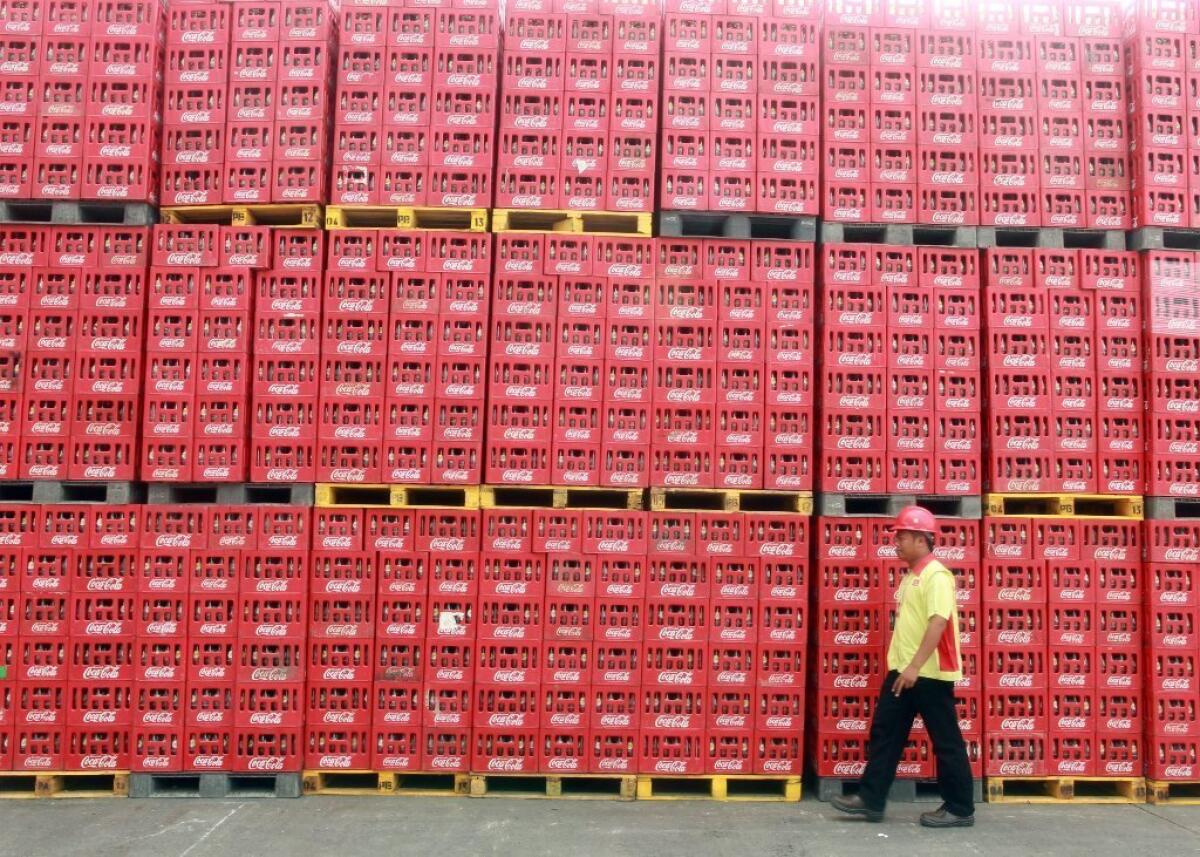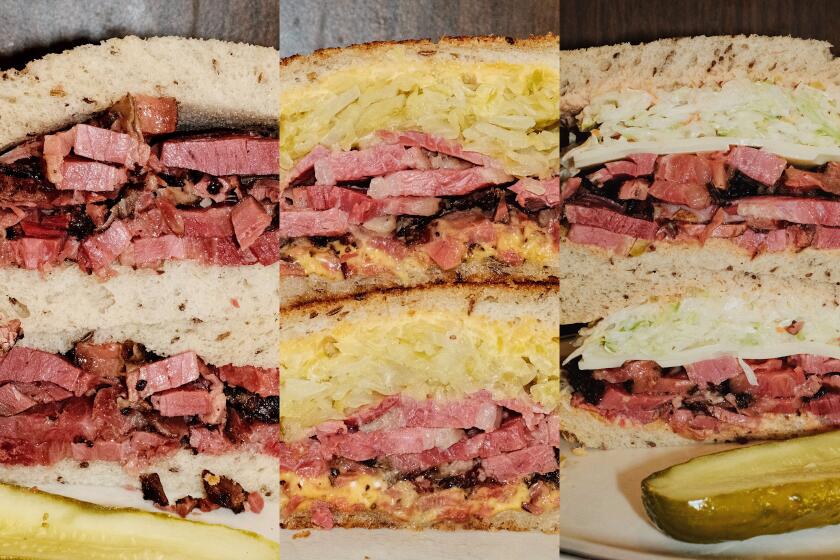What’s the right way to tax sugary drinks?

If you believe obesity is a serious health risk in the United States and sugary drinks are a major contributor to the problem -- and that’s surely the prevailing nutritionists’ view -- then a sugared beverage tax has to be on your radar screen.
Now two university economists have found levying this sort of tax is the wrong approach. It’s much more efficient and effective, argue Matthew Harding of Stanford and Michael Lovenheim of Cornell, to tax the sugar, not the drink. The main reason is that a sugar tax tougher to evade.
There’s no question obesity has reached the level of a public health crisis. In their paper for the National Bureau of Economic Research, the authors remind us more than two-thirds of Americans are considered overweight today and one third are obese. About 30% of children fall into those categories. The rates have increased sharply over the last four or five decades.
The idea of a tax on the perceived culprit foods isn’t novel. As of 2011, the authors state, 35 states were charging sales tax on soda or imposing an excise tax on the product, distinguishing it from foods exempt from tax. Prohibiting the purchase of sugared drinks with food stamps or other public relief benefits often pops up in Congress or state legislatures.
In Mexico, the government is contemplating a tax on sugared drinks, part of an anti-obesity campaign backed by former New York Mayor Michael Bloomberg’s charitable foundation. As mayor, Bloomberg, of course, tried and failed to put a cap on his constituents’ sugar consumption with an ordinance limiting the size of beverage containers.
Harding and Lovenheim say sales taxes on sweetened drinks are generally ineffective -- the rate isn’t high enough to discourage buying them, and because the tax is calculated at checkout, it’s almost invisible to consumers.
What about a large tax that shows up in the price? They calculate a 20% tax on sugared soda -- that is, increasing the cost of a bottle of Coca-Cola by 20% -- would cut the total calories consumed by an average 4.84% and sugar consumption by 10%. The authors say that’s the equivalent of 16 cans of Coke per month.
A tax on sugar, however, would decrease calories by 18% and sugar by 16%. Because it would percolate through to products with other unhealthful qualities, such as excessive sodium and fat, it would have broader positive effects. And it wouldn’t allow consumers to simply substitute one untaxed unhealthful product for a taxed unhealthful product.
It’s proper to note here the authors, being economists, don’t deal with the practicalities of enacting the sort of tax they study. A sugar tax -- or a fat or salt tax, for that matter -- would generate a huge pushback from the food industry far beyond Coke and Pepsi.
And the beverage sector hasn’t taken proposals for soda taxes lying down. Coke, Pepsi and other beverage companies spent $70 million to kill a soft-drink tax in Hawaii in 2012. Coke’s chief executive, Muhtar Kent, argued in a Wall Street Journal op-ed piece a few years ago that America’s lazy and sedentary lifestyle, not sugared drinks, were the cause of obesity.
Business and political leaders, he wrote, should encourage “greater physical activity and sensible eating and drinking, while allowing Americans to enjoy the simple pleasure of a Coca-Cola.” In other words, please drink responsibly. And if you think $70 million is a lot for the beverage industry to spend against a soda tax, imagine what the food industry would spend to kill a sugar tax.
More to Read
Eat your way across L.A.
Get our weekly Tasting Notes newsletter for reviews, news and more.
You may occasionally receive promotional content from the Los Angeles Times.







